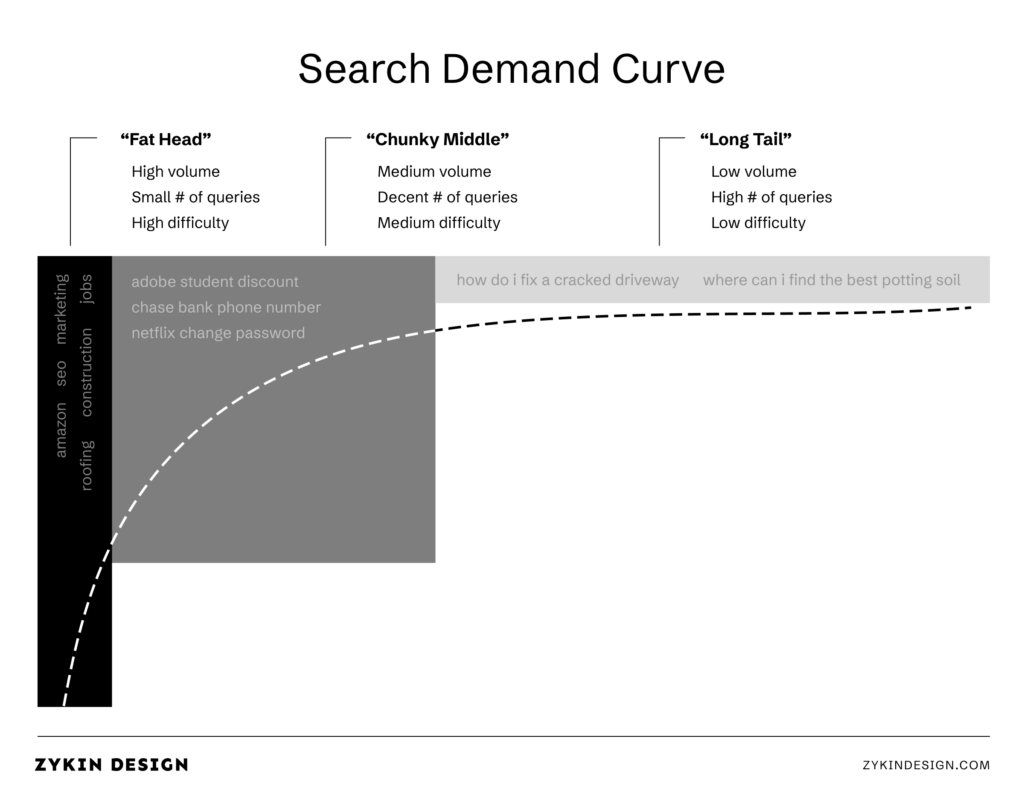Why Keyword Research is Critical for Your Marketing Strategy
By McKell Michaelson on October 14, 2024

Once you’ve decided to begin a marketing campaign, one of the first things a marketing specialist will do is keyword research. It involves identifying the words and phrases that potential customers use when searching for products, services, or information online. By understanding these search terms, businesses can tailor their content to meet user intent, improve search engine rankings, and drive targeted traffic to their websites. In this article, we’ll explore what keyword research is, why it’s an important step in creating a marketing strategy, and how a marketing specialist can leverage this knowledge to create engaging content that resonates with your audience and boosts your online presence.
What is Keyword Research?
Keyword research is the process of finding and analyzing words and phrases that people enter into search engines, with the goal of using that data for marketing and SEO purposes. Keyword research can uncover queries to target, the popularity of these queries, their ranking difficulty, and more 1. These search terms, known as “keywords”, can range from single words (short tail keywords) to complex phrases (long tail keywords).
The terms “short tail” and “long tail” come from what is called “The Search Demand Curve”. The search queries that have the highest volume are single words, like “amazon”, or “shoes”. The middle represents the queries with decent search volume that tend to be multiple word phrases like “coffee near me”. The vast majority of search queries however are long tail keywords that are complex phrases like “how to choose a health insurance plan”. While the individual volume of these keywords is low, they make up the bulk of searches done every month 2.

So how do you determine which keywords to use in your marketing strategy? Keyword research involves several steps, including brainstorming potential keywords, using tools to analyze metrics and discover related keywords, and analyzing the competition for those keywords. The goal is to find keywords that have a good balance between search volume and competition, and are relevant to your business, making them valuable in your content strategy. There are a few different factors to pay attention to when doing keyword research:
- Search Volume: This refers to the number of searches conducted for a particular keyword each month. Short tail keywords often have high search volumes and are highly competitive. For example, a keyword like “shoes” will have an extremely high volume because it’s a common search term. On the other hand, long tail or niche keywords typically have lower search volumes but face less competition.
- Keyword Difficulty: Keyword difficulty, or competition, measures how challenging it is to rank for a specific keyword in search engine results pages (SERPs). This difficulty is scored on a scale from 0 to 100, with lower scores indicating less competition. The higher the difficulty, the harder it will be to achieve a top ranking for that keyword.
- Cost Per Click (CPC): CPC is an estimate of the cost to rank for a keyword through paid search advertising. If you were to run a pay-per-click (PPC) campaign, this metric reflects the estimated cost per click for that keyword. Keywords with a higher CPC are usually more competitive.
- Relevance: While you can’t measure relevance with a tool, it’s a critical factor when selecting keywords. Consider whether a keyword is highly relevant to your business. A keyword might have high volume and low difficulty, but does it align with what your business offers? Will ranking for it attract the right type of organic traffic? For instance, if your business specializes in landscaping, and you incorporate a keyword like “sprinkler systems” all over your website because it’s low competition and high volume, you might rank high in the SERPs, but will probably attract visitors seeking sprinkler system services rather than those looking for landscaping. These users may leave your site when they realize it’s not what they’re looking for, and create an inaccurate view of your organic traffic. You may start getting leads your business doesn’t necessarily want because the SEO is being tailored to something that isn’t part of your core business offering, or isn’t your bread-and-butter revenue generator. This can be a huge waste of time and resources for you as a business owner.
Why is Keyword Research Important?
There are several reasons why a marketing specialist dedicates time to keyword research. Keywords are the framework of your marketing strategy, much like the foundation of a house. Just as a house is built on its foundation, your content is built upon carefully chosen keywords. These keywords will be used in every aspect of your digital presence (technical titles and descriptions, on-site content, off-site content, and ads) so selecting the right ones is crucial to attracting the business you want.
This is where the expertise of a marketing specialist becomes invaluable. A word might sound perfect in theory, but without doing the proper research, you won’t know if it has low search volume or is too competitive to be effective. Keywords can also significantly influence the cost of your PPC campaigns. When setting up Google Ads, you input the keywords you want to use in your ads and Google estimates the cost to rank for them. If the cost is too high for your monthly budget, you’ll need to reconsider your strategy.
Keyword research not only helps identify the most effective terms but also encourages creativity. It allows you to explore your business more deeply and discover keywords you might not have initially considered—keywords that could give you a competitive edge. While your competitors might stick to the obvious, thorough keyword research can give you the upper hand in the marketplace.
7 Reasons Why You Should Work With a Marketing Specialist on Keyword Research
- Expertise & Experience: A marketing specialist has in-depth knowledge of the latest tools, techniques, and trends in keyword research. Their expertise allows them to quickly identify high-value keywords that might not be obvious to those without experience, ensuring your content targets the right audience effectively.
- Strategic Insight: While creating the Action Plan, a marketing specialist will analyze your business goals, competition, and target audience to help develop a keyword strategy that aligns with your overall marketing objectives. This strategic approach ensures that your content not only attracts traffic but also drives conversions and supports long-term growth.
- Efficient Use of Resources: Keyword research can be time-consuming, and requires thorough research and analysis. By working with a specialist, you save valuable time and resources, allowing you to focus on other aspects of your business while the specialist handles the research and implementation.
- Competitive Advantage: A specialist will conduct a competitive analysis as part of the Action Plan to identify the keywords your competitors are targeting and find gaps where your business can stand out as well as ways you can target the same keywords more effectively. This insight gives you a competitive edge by helping you capture market share in areas where your competitors may be lacking, or creatively maneuvering around the competition.
- Advanced Tools & Techniques: Marketing specialists often have access to advanced keyword research tools and software that provide more detailed data and audience insights. These tools can reveal keyword opportunities, trends, and performance metrics that are not available through basic, free tools.
- Ongoing Optimization: Keyword research, like many other facets of marketing, is not a one-time task; it requires ongoing analysis and adjustment. A marketing specialist can continuously monitor the performance of your keywords, adapt your strategy to changing trends, and ensure that your content remains relevant and effective over time.
- Higher ROI: By targeting the right keywords and optimizing your content accordingly, a marketing specialist can help you achieve better rankings, attract more qualified leads, and ultimately increase your return on investment (ROI). This ensures that your marketing efforts are cost-effective and yield better results.
Key Takeaways
Keyword research is a fundamental aspect of any successful marketing strategy. It serves as the framework where all your content efforts are built, guiding the creation of social media content, technical SEO, PPC campaigns, and more. By understanding the nuances of metrics like search volume, keyword difficulty, cost per click, and relevance, businesses can make informed decisions that drive targeted traffic, enhance online visibility, and ultimately achieve their marketing goals.
Working with a marketing specialist to conduct thorough keyword research not only saves time and resources but also provides the expertise and strategic insight needed to stay ahead of the competition. With the right keywords in place, your business can attract the right audience, maximize ROI, and maintain a strong, adaptable presence in the ever-evolving digital landscape.
Contact us to discuss how we can help you get started on keyword research for your business.
Sources

About the Author
McKell Michaelson is a Digital Marketing Specialist at Zykin Design dedicated to driving business growth, maximizing ROI, and increasing brand visibility through strategic and thorough online marketing campaigns.


